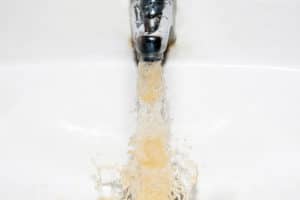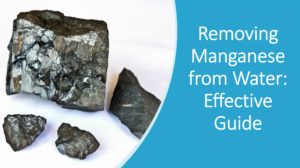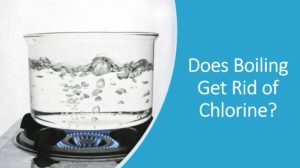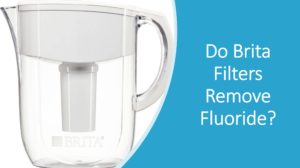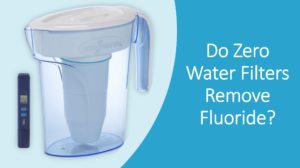There are many ways to remove fluoride from your drinking water. Some of these options are complex, whole-household systems, while others provide filtering when you use them.
So, does PUR filter remove fluoride? Unfortunately no, but that’s okay because it’s not the only option on the market.
If you want to remove fluoride, the best option is to consider where you want to remove it from your water, then get a system that matches.
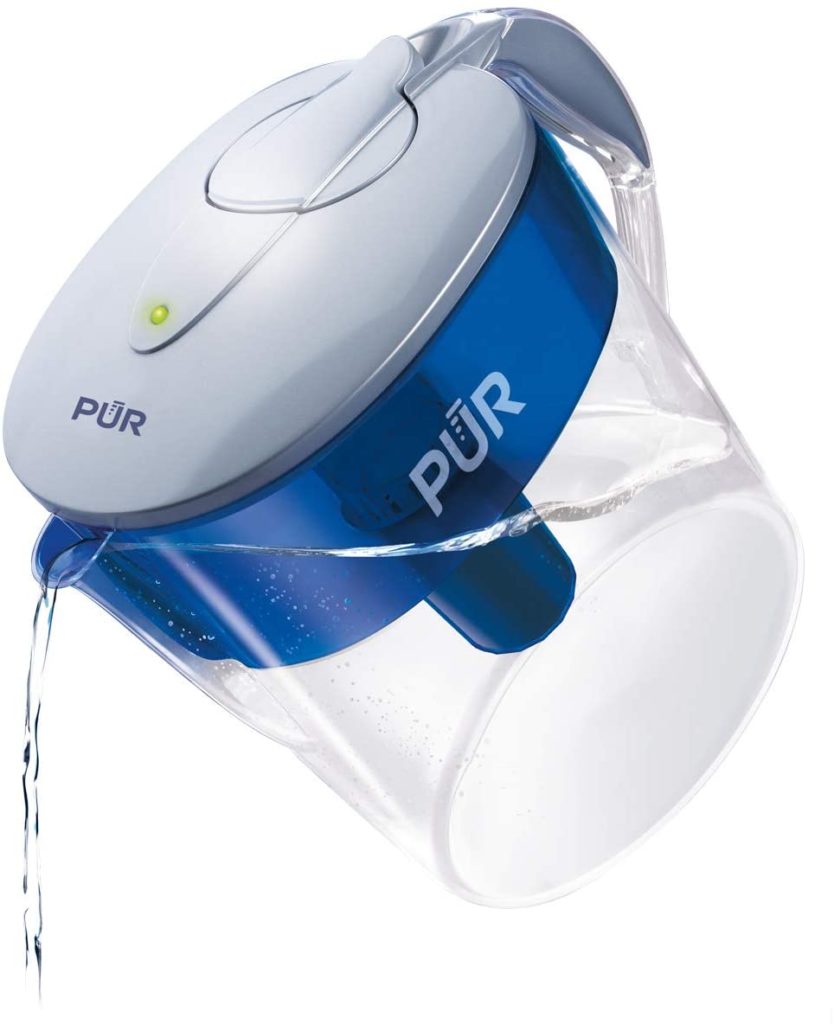
Does Pur Filter Remove Fluoride From Water?
Do PUR filters remove fluoride? No, PUR filters do not remove fluoride.
While sites occasionally report otherwise, PUR has a contaminant comparison chart on their website that lists the contaminants that each of their main products filters out. As you can see by checking the chart, fluoride is not on that list.
Does PUR filter out fluoride at all? Well, the filters may catch some molecules, but usually not enough to make a significant difference.
See Also:
How Effective Are PUR Filters In Removing Fluoride?
PUR filters are not effective at removing fluoride. While they may reduce small amounts of it while filtering, the material they use mostly isn’t effective at catching fluoride atoms. Here’s the science behind it.
PUR filters mainly use activated carbon, and more specifically, carbon made from coconut shells. Activated carbon has an extremely high surface area, with countless tiny pores that are great at catching and holding different molecules.
Carbon is a popular substance for filtering water because it removes many organic compounds, waste gases, odor-causing compounds, and even chlorine. Activated carbon also allows a relatively quick flow rate, which is essential for your faucet and regular household uses.
Coconut-based activated carbon is particularly useful because it has excellent durability, minimal dust creation, and high purity. It’s also renewable since it comes from plants, ensuring a consistent supply.
Unfortunately, activated carbon isn’t good at absorbing fluoride in most circumstances. It can adsorb this particular chemical under the right circumstances, but PUR filters typically aren’t designed for this.
Related Article: PUR vs. Brita Water Filter Brands Comparison
Other Filters That Remove Fluoride
Several other types of filters can remove fluoride from water, even though PUR filters aren’t rated for that. If you’re dissatisfied with asking, “does PUR remove fluoride?” and finding out that it doesn’t, these are the alternatives you can start checking:
Gravity Filters
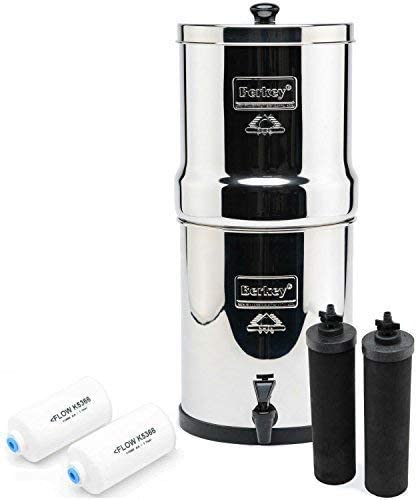
Gravity filters, such as the Big Berkey, pull water down through a large filter and into a lower storage container. These aren’t fast enough to provide purified water for your whole household unless you set up some extra tanks to draw water from, but they are extraordinarily effective.
Most gravity filters use a single solid filter instead of filling a chamber with activated carbon. These filters have microporous elements in them that capture anything too large to fit through. The filters can have as much as several inches of space for water to filter through, even though most contaminants get caught in less than a paper’s width from the surface.
Lifespans for filters can vary, but some manufacturers create filters that can last for decades. They’ll last even longer if you can wash the surface of the filter and reuse them.
One major benefit of gravity filters is that they need no power to function. They work entirely by gravity, and they can easily filter out rainwater and other contaminated sources to provide purified water in their lower basins.
Most modern gravity filters are stainless steel, but ceramic options are also available.
Distillers
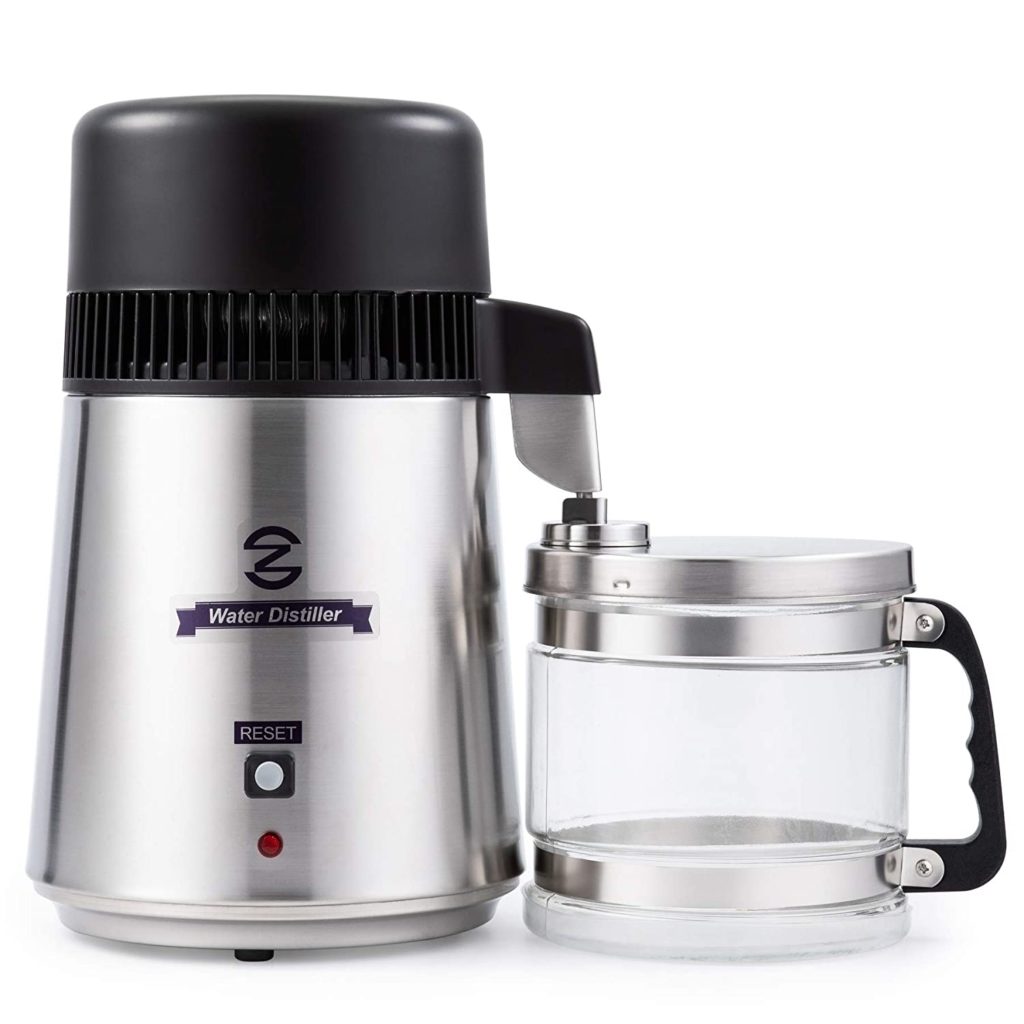
Distillers are an exceptionally effective way of purifying water, but they’re also slow. The exact speeds vary, but it may take a distiller several hours to filter a single gallon of water. Waiting hours for filtered water isn’t a good choice for regular household use. However, distillation is so effective that the resulting water is a good choice for many medical needs.
Most distilled water is at least 98% pure and often rather higher because heavier chemicals like fluoride don’t float into the air the way steam does. The relatively high energy cost and slow speed of distilling make this a poor choice for everyday use, though.
On-Demand Reverse Osmosis
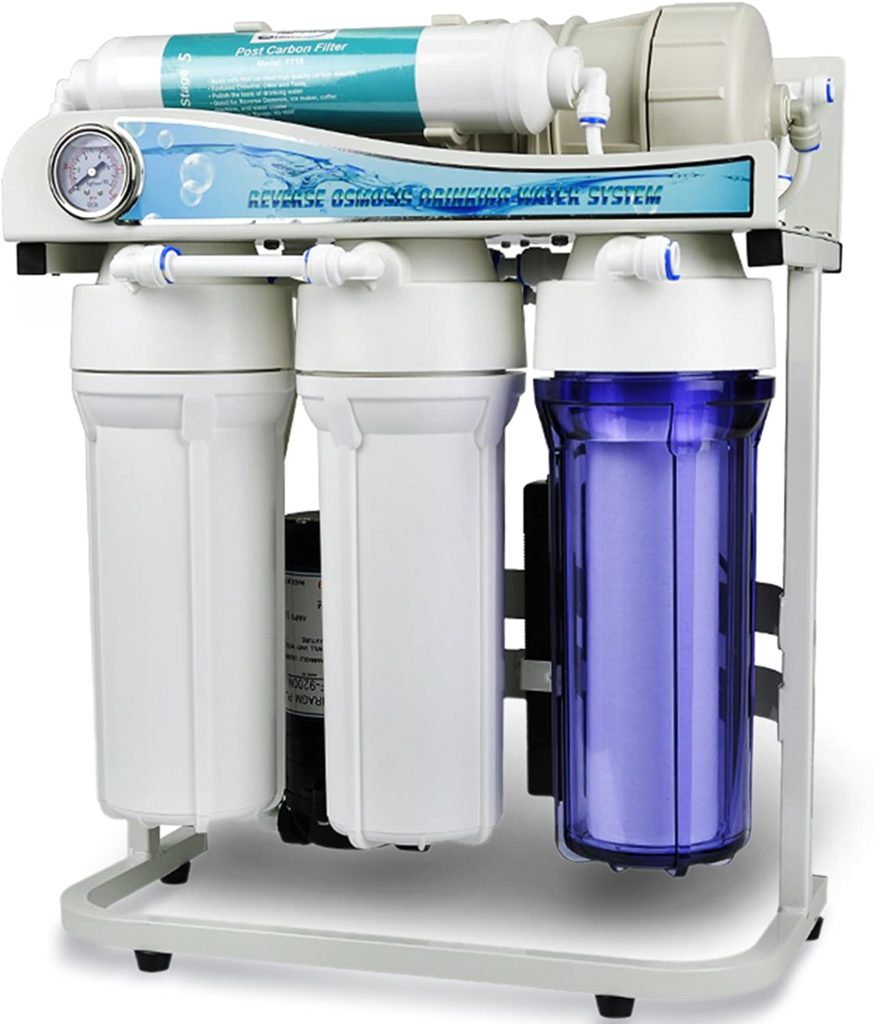
Most people think of reverse osmosis systems as household setups that purify the water, then store it in tanks for later use.
However, modern advancements have also come up with some countertop systems that provide water on-demand. These have the added benefit of not requiring any special installations.
Reverse osmosis works by using pressure to force water molecules through a membrane. This membrane stops contaminants like fluoride from passing through, ensuring the water you get is exceptionally clean. Distillation is usually slightly purer, but both processes produce water that’s pure.
On-demand systems have one interesting feature: minimal water waste. Traditional reverse osmosis systems can waste a lot of water to generate the pressure that pushes water through the membrane.
On-demand countertop systems, on the other hand, can reuse that water as you add new water in, with only the occasional dump to get rid of concentrated impurities.
Fluoride-Rated Pitcher Filters
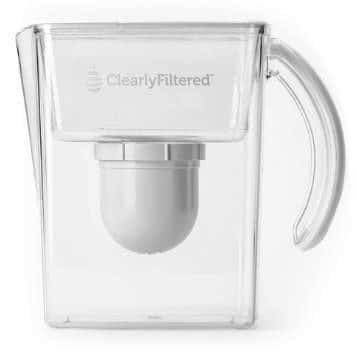
Water pitchers that remove fluoride are rare, but they do exist. One example of this is the Clearly Filtered brand, which uses activated carbon (just like PUR) but with a different manufacturing technique that makes it more effective. The company claims to remove 98% of fluoride, and most other chemicals, up to 99.9% efficiency.
Make sure to check the manufacturer’s website before you buy any water pitcher to help filter out fluoride. Some manufacturers may only remove fluoride with some of their filters. Knowing which of their products is rated for fluoride filtering is essential to getting the performance you want.

